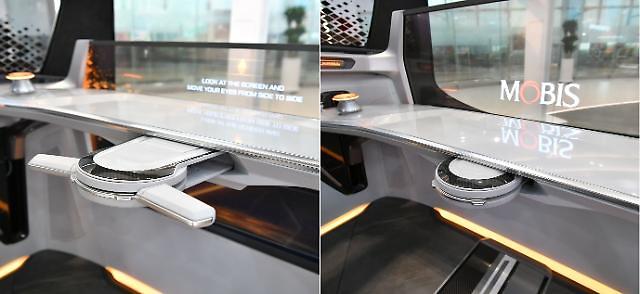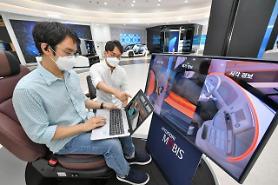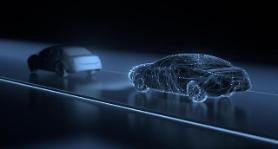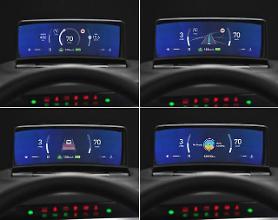
[Courtesy of Hyundai Mobis]
In an autonomous driving mode, the driver can rotate the seat 180 degrees to create an environment for relaxation and conversation with passengers in the rear seat, Hyundai Mobis said, adding it has secure the new system's durability and reliability by applying steer-by-wire and other new technologies.
Steer-by-wire technology uses electrical or electro-mechanical systems to convert the movement of the steering wheel into electronic signals. Vibration is not transmitted to the handle when passing through irregularities or bumps on the road surface by removing the mechanical connection device. Safety can be improved by providing computer-controlled intervention of vehicle controls.
Depending on driving conditions, Hyundai Mobis said that handle reactivity can be automatically increased or reduced, giving a sense of stability and maximizing driver's drive sensitivity on circuits or winding roads. The company has applied a dual safety system that can independently control key electronic components such as sensors and electronic control units to maintain normal steering even when one device stops working.
Hyundai Mobis has accelerated the development of sensors, cameras and other parts for autonomous vehicles. The company said the foldable steering system is needed for future mobility solutions such as urban air mobility (UAM) and purpose-built vehicle (PBV). UAM is a future ecosystem involving flying passenger vehicles in city areas. PBVs can adapt to specific lifestyle needs of passengers, reduce time wasted on congested highways, and perform social functions.
Copyright ⓒ Aju Press All rights reserved.



